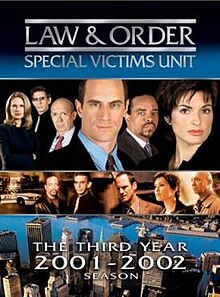Sale or Contingency: Is There a ‘Best Way’ to Collect Judgments?

Judgments are regularly filed against debtors across the country. Courts enter the judgments on behalf of creditors seeking to get paid what they are legally owed. All too often, those judgments go unpaid. So much so that some 80% of all judgment creditors never see a dime.
More often than not, judgments go uncollected because creditors either don’t know how to enforce judgments or they lack the resources to do so. This is where judgment collection agencies come in. A firm like Salt Lake City’s Judgment Collectors steps in and takes over.
There are two methods by which a creditor can utilize the services of a judgment collection firm. The first is to outright sell their unpaid judgments to the firm. The other is to place the judgments with the firm on a contingency basis. Knowing these two options, is there a best way to collect unpaid judgments? No. It is a matter of preference.
1. Selling Judgments to an Agency
Choosing to sell unpaid judgments to collectors immediately alleviates creditors from having to deal with said judgments any longer. Any and all collection efforts immediately cease. Creditors spend no more time or money chasing down debtors. It is fast, clean, and simple. Yet it does come at a cost. That cost is related to how collection agencies get paid.
A judgment collection agency is a business just like any other. It has to cover its own expenses and generate some profit. To do that, firms generally charge a percentage of the value of the judgment at hand. For example, the Acme widget company might decide to sell a $10,000 judgment to a collection agency. The agency researches the judgment, estimates its own costs and the likelihood of recovery, and comes back with a $6,000 offer.
The creditor now must decide whether $6,000 is an acceptable price or not. If so, the judgment is sold, and the deal is done. Such transactions are possible because the law recognizes civil judgments as legal assets similar to securities. They can be bought and sold as needed.
If the creditor decides the offered price is too low, one of two options exist. Either the creditor can walk away and take the judgment to a new agency or attempt to negotiate a higher price. In either case, the creditor is not going to get full value for that judgment. There is no way it can and still allow the collection agency to make money.
2. Placing Judgments on Contingency
Creditors do not have to sell their judgments if they don’t want to. Instead, they can place them with collection agencies on a contingency basis. It works a lot like personal injury attorneys who work on contingency. An agency takes a case with the understanding that they will only get paid if they succeed in collecting.
If there is any advantage to this strategy it is the fact that creditors stand a chance of realizing a larger sum from collection. How so? The contingency model motivates the collection agency to do everything within its power to collect as much money as possible. By agreeing to receive a certain percentage of what is eventually collected, the creditor stands to receive more than would have otherwise been received had they sold the judgment instead.
Judgment creditors choosing to turn to collection agencies can either sell their judgments or place them on a contingency basis. Neither choice is necessarily better than the other. It is really a matter of preference, based on individual needs and circumstances. Every case has to be looked at according to its own merits.…
Florida DUI Penalties & Procedures
Florida DUI Penalties & Procedures
 The social implications of drinking and driving are not to be taken lightly, this explains why the legal penalties for someone caught driving while intoxicated are severe. In Florida, penalties for DUI (driving under the influence) are different based on whether the offense was committed for the first time, the amount of alcohol found in the blood, and the driver’s willingness to cooperate with the police.
The social implications of drinking and driving are not to be taken lightly, this explains why the legal penalties for someone caught driving while intoxicated are severe. In Florida, penalties for DUI (driving under the influence) are different based on whether the offense was committed for the first time, the amount of alcohol found in the blood, and the driver’s willingness to cooperate with the police.
Suspension Of Your License
If you refuse to take an alcohol test, whether it is a breathalyzer, blood, or urine test, the Department of Highway Motor Vehicles (DMV) may impose upon you a suspension of your license for a certain period of time. For a driver who refuses to take the test for the first time, the DMV may suspend his license for six months, while a driver who refuses for the second time and the succeeding instances is deferred of his license for as long as 18 months. If your license has been suspended for the first time because of a refusal to take the test, you can apply for a hardship license or a business purposes license, which expires after 42 days, after 90 days of hard (no driving) suspension. It is during this period that your DUI attorney can gather all evidence to prove that the police lacked probable cause to arrest you for DUI.
If you have taken one of the alcohol tests and your blood alcohol content is more than 0.08, the DMV will suspend your driving license immediately after 10 days during your arrest. This applies to all drunk driving offenders, whether it is their first time to be arrested for DUI or not. License suspension lasts for up to six months. After 30 days or approximately one month of hard suspension, where the driver is prohibited from driving, you can apply for a hardship license or business purposes license to plead the DMV to allow you to drive for business purposes for up to 42 days, provided you show proof that you have attended DUI school during the period of hard suspension.
Alcohol Rehabilitation
Apart from administrative suspensions imposed by the DMV, a person who is convicted of DUI also suffers from statutory penalties that are enforced by the court. A first conviction leads to imprisonment of not more than six months. Imprisonment is not commonly spent in jail, but in an alcohol rehabilitation center or drug abuse treatment facility. A fine of $500 to $1,000 is also levied and a license revocation (separate from the administrative suspension that begins 10 days after the arrest) of six months to one year. If the vehicle is a commercial motor vehicle (CMV) and the driver was tested to have a blood-alcohol-concentration of 0.04, he is disqualified from driving a CMV for one year. Persons convicted of DUI are also required to serve a mandatory 50 hours of community service or pay $10 for each hour of community service. Probation of up to one year is also necessary. For persons who are tested to have BAC of 0.15 or higher and those who committed DUI with a minor inside the vehicle, enhanced penalties are executed.
Second convictions are, understandably, more severely penalized the first convictions. The court requires a person convicted with a second DUI to pay a fine of not less than $1,000 and not more than $2,000. The court may also oblige the convict to serve not more than nine months in an alcohol rehabilitation center or a drug abuse treatment facility. If the second DUI is committed within five years after the first conviction, jail time of not less than 10 days is mandatory, 48 hours of which should be served consecutively. The court also has the power to revoke the offender’s license for a minimum of five years, provided the second conviction took place within five years after the first conviction. A hardship license or business purposes may be given after one year of serving the revocation.
Jail Time
Florida law imposes more severe penalties for persons who have been convicted for the third time. Imprisonment, which is equivalent to time spent in an alcohol rehabilitation center or a drug abuse treatment facility, is up to 12 months. Up to 30 days of mandatory jail time is also required, with 48 consecutive hours in jail mandatory. If the third conviction took place 10 years after the second conviction, a fine of not less than $2,000 or more than $4,000 is levied. License revocation may take up to 10 years and the offender may only start applying for a hardship license or business purposes license two years after serving the suspension.
Ignition Interlock Device
The court has the power to order the installation of an ignition interlock device into the offender’s vehicle …
Criminal Law and Public Defenders – Is There Equal Justice?
Criminal Law and Public Defenders – Is There Equal Justice?
 Not long, ago, someone had contacted me who happened to get into a little trouble in a small town. It was a relatively minor incident, and yet, she felt as if the system was very unjust. She couldn’t afford an attorney, it was just too darned expensive for her. She stated to me that when she said she was going to get a lawyer and come back in 2-weeks, she had no idea it would cost so much.
Not long, ago, someone had contacted me who happened to get into a little trouble in a small town. It was a relatively minor incident, and yet, she felt as if the system was very unjust. She couldn’t afford an attorney, it was just too darned expensive for her. She stated to me that when she said she was going to get a lawyer and come back in 2-weeks, she had no idea it would cost so much.
When she came back to court without a lawyer, she said she was assigned a public defender. The public defender mixed up her case, probably due to being over worked; “The Judge was furious and fired him from the case, She made it law that from now on any one who cannot afford an attorney is allowed only $150 – worth of free council This don’t buy Jack #$%.”
Well, judging by her comments the judge wasn’t the only one who was furious, and her comments on the $150 towards a private attorney are laughable and an understatement. She also stated that the DA is further investigating her and her family, and causing problems with the relationship she has with her neighbors in the community. She told me that;
“The prosecuting attorney actually walks the streets asking who ever if they know anything about so and so.” In her community, there are no secrets, and she said even rumors can get someone in trouble with the law.
The moral of the story here and I suppose her main point is the challenge in America with unequal justice, it’s a real problem. We have different standards, and poor folks are not as likely to get off as easy as wealthy clients who can hire the best representation (lawyers). Everyone knows that’s true, but we still believe our Justice System in the US is the best, and we work to try to make it fair for all, even if it fails us occasionally as a society.
What I’ve found along the way is that those who can afford to pay the expensive lawyers, they get by with things, and those without can’t. We have unequal justice in the US, and I think everyone knows that, there are a different set of rules for rich and poor, all under the cloak of equal justice for all. As long as we don’t try to hide this reality or the debris under the carpet we have a fighting chance of making things right, if not, we will continue to live in hypocrisy, and that’s unfortunate.
Please consider all this – our topic of the day.…
The Best Way to Find a Criminal Attorney for Your Case
The Best Way to Find a Criminal Attorney for Your Case
 If you have been arrested, or think you are going to be, you will need a criminal defense attorney to protect your rights by following through the legal steps involved to win your case. It is in your best interest to remain silent and do nothing to further incriminate yourself by exercising your Miranda rights.
If you have been arrested, or think you are going to be, you will need a criminal defense attorney to protect your rights by following through the legal steps involved to win your case. It is in your best interest to remain silent and do nothing to further incriminate yourself by exercising your Miranda rights.
Your attorney will meet with you to discuss in detail everything you know about your involvement. During this time you should be totally honest with him and don’t hold back any details because they could be more important than you think. Let your lawyer decide what is and isn’t important to your case. They will know and meet all deadlines for submitting evidence and paperwork, and make sure you understand any actions taken by the court, or other attorneys, so you know what to expect.
There will be an initial hearing where you will be formally charged with the crime, and advised of your rights as a defendant. A “Not Guilty” plea will be entered to give your attorney more time to gather what is needed to properly build your defense. At a later date, there will be a process of discovery where your attorney will make a formal request from the prosecution to produce copies of the evidence against you. This should include a list of witnesses, police reports and statements from any victims that were involved.
During this period your lawyer has time to collect any additional evidence that can prove your innocence. A court reporter will record statements which are called Depositions. Anyone giving a deposition is sworn under oath to be telling the truth, and could be used later in court during your trial.
The defense is allowed to conduct their own investigation in an effort to find additional evidence for your own experts which could prove that you are innocent. Finding additional witnesses, possibly taking more pictures and interviewing any other persons who may have information can help to explain your side of the story.
During pretrial motions the evidence that has been collected will be argued to decide what factors are admissible in court. Some of the evidence may be suppressed if not gathered through the proper procedures, or is otherwise in question. Pretrial is where your attorney makes sure you are protected for your Constitutional rights, and are treated to a fair trial. When evidence is suppressed, it can not be used against you.
At each step in the representation, your attorney will keep you informed of the any developments in handling your case and ensure that you understand what is going on and how it can affect you. If a plea negotiation is in your best interest, he will advise you of what is in your best interest for you to agree. He will work closely with experts, authorities and investigators to make sure all facts are correct and that everything is complete.
A criminal defense attorney is there to represent you during your interrogation, as well as navigate your case through the legal system. If you should be incarcerated, he will work diligently to get you an appeal. It is not unusual for an attorney to work for several years in bring a satisfactory conclusion to your case.…
Should You Hire A Criminal Lawyer To Handle Your DUI Case?
Should You Hire A Criminal Lawyer To Handle Your DUI Case?
 A reliable Alameda County DUI lawyer should also be registered as a criminal lawyer in Oakland. He should be familiar with the local authorities, and the prestigious Alameda County courthouse, which is located in Oakland.
A reliable Alameda County DUI lawyer should also be registered as a criminal lawyer in Oakland. He should be familiar with the local authorities, and the prestigious Alameda County courthouse, which is located in Oakland.
When arrested for Drinking Under the Influence, or DUI, the penalties can be rather severe when convicted. The consequences of a second arrest can be even more devastating, altering your life forever. Only through the representation of an experienced Alameda County DUI lawyer will you be able to significant influence your case, and the potential outcome.
How do you select the right Criminal lawyer in Oakland?
To find the best possible legal representation, research the DUI attorneys in your area. Only hire the one who has qualifications, such as:
• Having an extensive background practicing DUI cases.
• Winning many DUI cases, or being able to positively influence the outcome of the sentencing when guilt was proven.
• Being familiar with any equipment used during DUI testing.
• Not coming to any conclusions, until all the facts have been thoroughly investigated – from the beginning to the end.
• Spending plenty of time with clients, even during the initial consultation.
• Charging rates everyone can afford.
• Also being recognized as a topnotch criminal lawyer in Oakland.
The reason why an Alameda County DUI lawyer should also be familiar with all aspects of criminal law is quite obvious. While being caught drinking under the influence is bad enough, you may be facing additional charges when causing an accident in this condition. The charges will rapidly pile up. Your life will be ruined, unless you are represented by an attorney who understands all the aspects of criminal law.…
Criminal Trials and Falsified Evidence
Criminal Trials and Falsified Evidence
![]() Our criminal justice system relies heavily on evidence to prove a person’s guilt or innocence. The burden of proof often is the deciding factor on whether a person is convicted of a crime or is set free. If the evidence shown in a criminal trial is inaccurate, forged, or tampered with, the entire proceeding has been jeopardized and the trial is rendered completely ineffective.
Our criminal justice system relies heavily on evidence to prove a person’s guilt or innocence. The burden of proof often is the deciding factor on whether a person is convicted of a crime or is set free. If the evidence shown in a criminal trial is inaccurate, forged, or tampered with, the entire proceeding has been jeopardized and the trial is rendered completely ineffective.
For criminals and prosecutors alike, the temptation for using falsified evidence may exist, but it is unlawful in any case. Criminals may want to present false evidence to show that they were not at the scene of the crime, or to for use as an alibi that will help them escape conviction. Prosecutors may be tempted to use falsified evidence to bolster their case or ensure the conviction of a person whom they are convinced committed the crime. The fact of the matter is, if the evidence does not exist to convict or exonerate, the case must move forward with evidence that is valid for the system to work.
Valid evidence should be authentic, original, and uncontaminated. For this reason, law enforcement officials should practice caution when investigating crime scenes and should rely on experienced forensic investigators to properly collect samples and other vital pieces of evidence from the scene. In the case of fluid samples, contamination can easily occur and damage the overall case for the prosecution, so they must be collected and stored in very secure conditions.
During criminal trials, documents and important paperwork are often submitted as evidence on both sides. Documents that are forged, altered, or otherwise changed to persuade the judge or jury of a point are considered to be falsified evidence. It is illegal to tamper with evidence in a criminal case, and if a document is found to be false, the judge can disallow it to be presented in court.
Incorrect or false statements by witnesses also can be considered to be falsified evidence. Trials often rely on eyewitness or character witness testimony for judgment, and false statements can be very harmful to the overall decision. There are severe penalties for proving false testimony, including perjury charges and other legal action.
Tainted samples or other forensic evidence that has been planted or tampered with may be thrown out of court and can result in a mistrial or dismissal of the case. For this reason, the prosecution and the defense must be careful to present evidence that is unquestionable as far as it’s authenticity and validity. If you would like to know more about falsified evidence and criminal trials, visit the website of the Appleton criminal attorneys of Kohler, Hart & Priebe.…
Reasons To Hire A Living Trust Attorney?

One of the better approaches to monetarily ensure an elderly individual is setting up a trust. The type chose upon the contributor or grantor’s objectives and conditions who is giving the cash and property to support the trust. It likewise relies on the needs of the individual who is to profit by the trust.
A living trust, otherwise called a Revocable Living Trust, isn’t equivalent to a living will, which gives clinical consideration choices. A revocable living trust is made while the individual is as yet alive and can be adjusted whenever; it’s a more straightforward choice to coordinate resources and consider proficient property conveyance upon one’s demise.
When thinking about setting up a revocable living trust for an elderly individual, it’s imperative to think about their intellectual ability initially. Do they be able to: execute regular business and comprehend the trust that they are marking?
In this way, as you participate in estate arranging exercises, it very well may be significant to work close by a trust attorney dallas. This is unquestionably evident about living trusts. In this post, we’ll list only a couple of the reasons why it pays to enroll the mastery of a living trust attorney dallas.
An estate arranging attorney can assist you with deciding the best answers to accomplish your estate arranging objectives.
With regards to estate arranging, there are nobody size-fits-all arrangements. Each customer we see at Singh Law Firm has a unique understanding of objectives and needs, in some cases including a will and trust, once in a while including different sorts of estate arranging documentation.
Regardless of whether you need a living will, trust, force of attorney, or a mix of the abovementioned, our attorneys can talk with you and point you the correct way.
An estate arranging attorney can assist you with setting up your living trust.
The stir associated with setting up a trust is undeniably more confounded than basically making a will. A firm of a living trust and wills lawyers can help you set up your confidence, guarantee it’s legally consistent, subsidize it, and encourage you on the best systems to limit your taxation rate.
This is challenging work that you would fundamentally prefer not to do yourself, mainly because even a little mistake can nullify your estate plan. Better to leave it to a group of trusted legal experts.
A living trust and wills lawyers can help you select a trustee.
When you make a living will, you’ll need to delegate somebody to fill in as the trustee; basically, this is the individual you’re naming to screen and deal with the assets in the trust.
It’s implied that it ought to be somebody fair and mindful; however, who, precisely? An attorney can educate you on the particular duties, suggest some great choices, and sometimes fill in as the trustee for you. This is a significant piece of the estate arranging process and not something to mess with.
Your attorney can clarify the various types of a living will, trust, force of attorney, and different documents.
Would it be advisable for you to set up a revocable living trust or an irrevocable one?
Would it be smarter to set up an economic force of attorney? What about a medical care force of attorney.
As you consider your estate arranging alternatives, there are various inquiries that you’ll have to engage. It’s essential to have a trusted legal partner who can offer vital lucidity. That is the place where a living wills attorney can be priceless to you. A living trust and wills lawyers can help you stay up with the latest.
Tip: It’s never astute to take a “set it and fail to remember it” way to deal with estate arranging. Most specialists suggest evaluating your arrangement every year and correcting it after any significant life change.
A living will attorney can help you keep steady over this and give you a frictionless method to keep your estate designs wholly lined up with your present longings.
…







